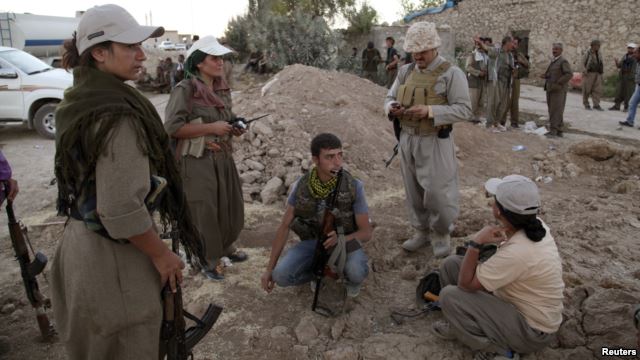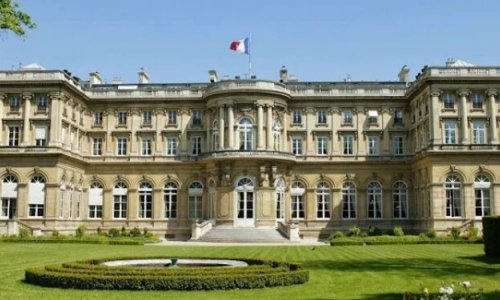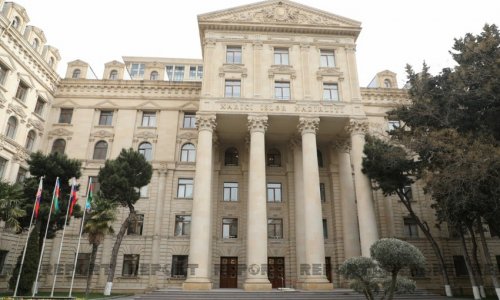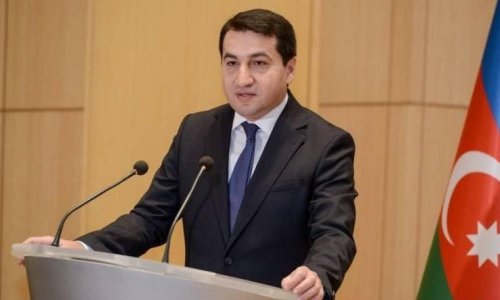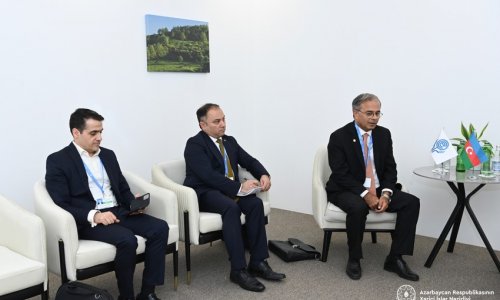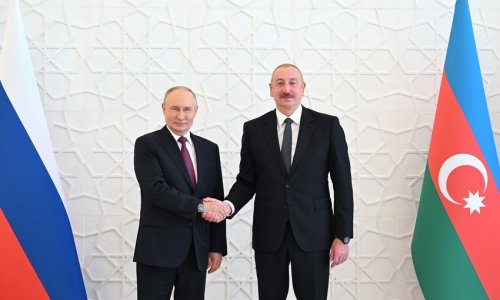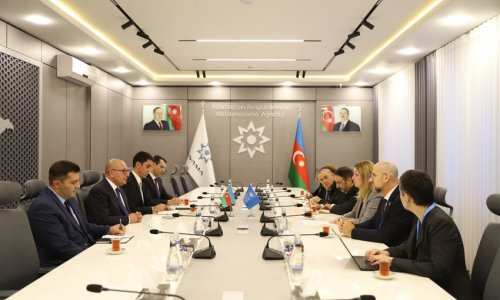(RFE/RL) - An Azerbaijani national arrested on December 1 on suspicion of attempting to set fire to a Baku mosque is alleged to have fought with a Kurdish militia against the Islamic State (IS) extremist group in the Syrian town of Kobani.
The suspect, named as Namig Nasibov, was arrested together with another man, Elnur Alakbarov.
According to Azerbaijani news reports, Nasibov fought in Syria in August and September with the "terrorist PKK (Kurdistan Workers Party).”
Other reports described Nasibov, and his accomplices, as "terrorists,” describing how he allegedly used social networks to call for rallies in Baku and were plotting to intimidate Sunni Muslims by carrying out terrorist attacks. The reports allege that on November 26, Nasibov and an accomplice threw firebombs at a mosque in Garachukhur, Baku.
That the Azerbaijani media says Nasibov was with the "terrorist PKK” is indicative of the long and complicated history between Baku and the Kurdish PKK.
In the first place, if Nasibov was fighting with Kurdish militias in Kobani, he could not have been with the PKK, a Turkish organization, at all. Instead, he would have fought with the People’s Protection Units (YPG), the armed wing of the PKK’s Syrian Kurdish affiliate, the Democratic Union Party (PYD). Do the Azerbaijani reports refer to the PKK as a convenient (but hardly necessary) shorthand, or are they highlighting what they believe is a threat from the PKK?
Azerbaijan officially designated the PKK a terrorist organization in July 2011. This move occured during an official visit to Azerbaijan by then-Turkish Prime Minister Recep Tayyip Erdogan. During that visit, Azerbaijani President Ilham Aliyev said that Baku "is always next to Turkey and its people in fighting this evil.”
As RFE/RL reported in 2013, in the early 2000s there were frequent unsubstantiated allegations of links between the leadership in Baku and the PKK, including claims that PKK members or even training camps were present in Azerbaijan. In 2003, Erdogan expressed concern that PKK members were operating in Azerbaijan, under the guise of cultural programs.
Some of the Azerbaijani news reports alleged that after his return from Syria, Nasibov had founded an illegal Azerbajani branch of the PKK, the Yekbun, which "started to be active and recruit supporters,” according to the 1news.az website.
The reports also indicate that Azerbaijani nationals are fighting on both sides in Kobani. Previously, evidence has emerged that Azerbaijani nationals are fighting with IS militants in or near the besieged Syrian town. Azerbaijanis are also fighting with IS elsewhere in Syria and also in Iraq. Azerbaijan has also arrested several nationals for allegedly joining IS in Syria.
If the allegations that Nasibov was fighting in Syria are true, it could indicate that more Azerbaijanis are fighting with Kurdish militias in Syria against IS. While Nasibov’s ethnic identity is not known, it is possible that such fighters could come from Azerbaijan’s Kurdish community. Azerbaijan’s Kurdish community in 2011 was estimated at around 70,000, or less than 1 percent of the total population. However, most Azeri Kurds reportedly no longer consider themselves Kurdish. The Kurdish stand against IS in Syria and Iraq could reinvigorate a sense of Kurdish identity elsewhere, including in Azerbaijan.
-- Joanna Paraszczuk
Follow us !

